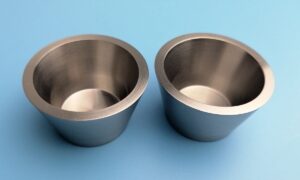Protein powder can be a helpful part of a healthy routine—when you use it the right way. Klear Protein believes in keeping things clean, simple, and balanced. It does not matter if you are working out, staying active, or just trying to feel better every day; protein can support your goals.
But remember, more is not always better. Taking too much protein powder might lead to stomach problems, tiredness, or even strain on your body over time. That is why it is important to know how much your body really needs. In this blog, we will talk about what happens if you take too much protein powder—and how to use it in a smart, healthy way. Let’s keep things clear, strong, and just right for you and learn how much protein is too much.
Why Do People Take Protein Powder?
People use protein powder for many simple reasons. Some want to build muscle, lose weight, or feel better after a workout. It is quick and easy and helps your body get the protein it needs, especially if you are busy or cannot get enough from food.
Klear Protein makes it even better. Our clear protein powders come in fun and tasty flavors like Strawberry Watermelon and Blue Raspberry Protein Powder. They are light, fast-digesting, and easy on the stomach. It does not matter if you are getting ready to move or winding down after a workout, our powders are here to support your health, without the heaviness.
Safe Protein Intake: How Much is Too Much?
The recommended daily protein intake depends on your age, weight, and activity level. For most adults, 0.36 grams of protein per pound of body weight is sufficient.
If you work out regularly or are an athlete, your protein needs may increase to 0.54 to 0.91 grams per pound of body weight.
For example:
A 150-pound person would need 54g of protein per day for general health.
If they are highly active, they may require 81g to 136 g of protein daily to support muscle growth and recovery.
Timing also plays a role in protein effectiveness. Consuming protein after a workout can help repair and build muscles, and starting your day with it can boost energy.
So, how much Protein is too much? Although there is no single threshold, sticking to the guidelines and accounting for protein from all sources can keep things balanced. Simply put, moderation is key.
Side Effects of Excessive Protein Powder Use
Overloading protein powder is more common than you may think. Many people assume more protein equals better results, but that is not true. Too much protein powder can negatively impact your health in several ways. Here are the side effects of taking too much protein powder-
-
Digestive Problems
Excess protein can upset your stomach. Common issues include bloating, gas, and even cramps. For some, the body has trouble digesting certain types of protein powders, particularly those with lactose or additives. This is your body’s way of telling you to cut back.
-
Caloric Surplus and Weight Gain
Did you know that extra protein often means extra calories? If you are not accounting for those calories, they add up, leading to unintended weight gain. Protein shakes and powders are not magic; they work best when balanced with an active lifestyle and mindful eating.
-
Reduction in Nutritional Balance
Relying too much on protein powders can crowd out other nutrients. Whole foods like vegetables, fruits, and grains provide essential vitamins and minerals necessary for overall health. By focusing solely on powder, you risk missing out on the big picture of balanced nutrition.
The Balance Between Food and Supplements
Whole foods should always be the foundation of your diet. Proteins from lean meats, eggs, beans, and tofu come with added nutrients that powders simply cannot provide. However, protein powders are a helpful supplement, particularly after workouts or when convenience is needed.
Looking to understand how protein powders like Clear Protein work? This resource explains how to use supplements effectively alongside whole foods.
Striking the right balance ensures you get the benefits of both worlds—natural nutrition and supplemental convenience.
Strategies for Proper Protein Powder Use
There are right and wrong ways to include protein powder in your diet. Here are some strategies to help you stay on track.
- Follow Serving Recommendations
The label on your protein powder is there for a reason. Stick to the recommended serving size to avoid unnecessary pitfalls. Taking a little extra here and there may not seem like a big deal, but consistently ignoring guidelines can lead to trouble over time.
- Consulting a Nutritionist or Dietitian
Everyone’s body is different. If you are unsure about how much protein your body needs, consult a nutrition expert. They can customize a plan based on your weight, activity level, and personal health goals. A little professional guidance can go a long way in creating a safe and effective diet.
Final Thoughts
Protein powder can be a fantastic addition to a balanced diet, offering convenience and support for active lifestyles. But remember, moderation is everything. Taking more protein powder than your body needs can lead to digestive issues, weight gain, and nutritional imbalances.
Responsible usage means knowing your limits, combining supplements with a range of whole foods, and educating yourself on how to use these products properly. Curious about your current protein intake? Take a moment to evaluate how much you are consuming and whether you could make improvements.
Klear Protein is here to support your health goals the smart way. Got questions? We would love to hear from you—or check out our clean, tasty, zero-lactose protein powder to get started.



































